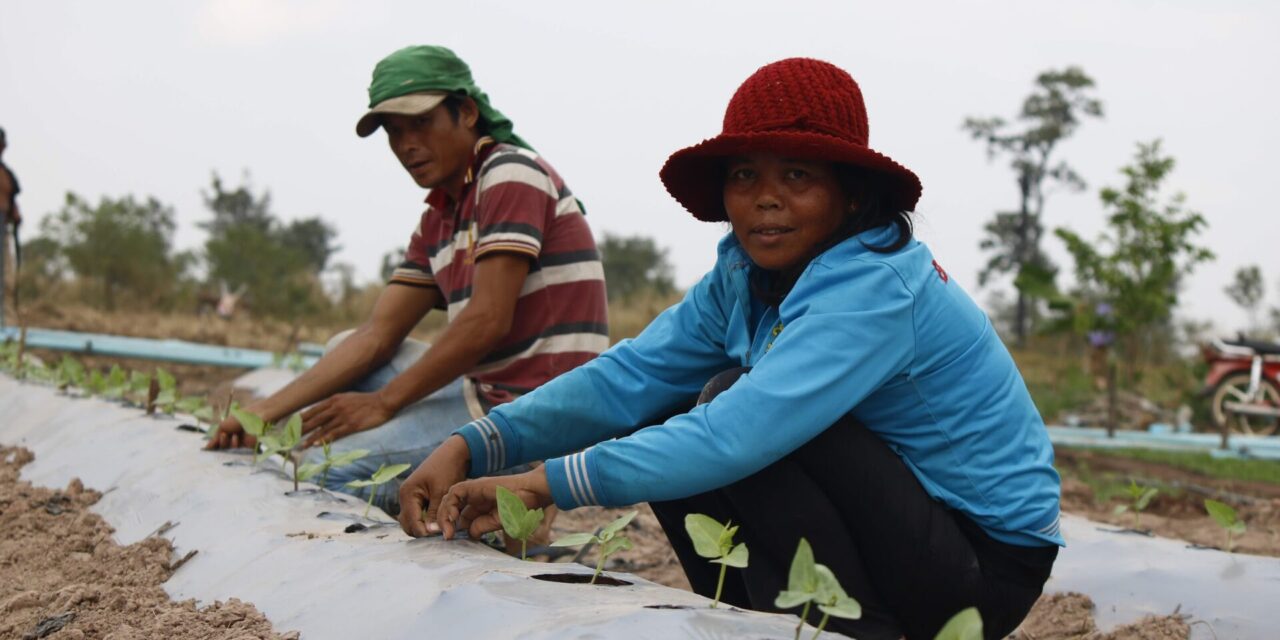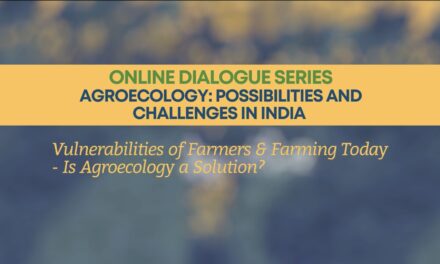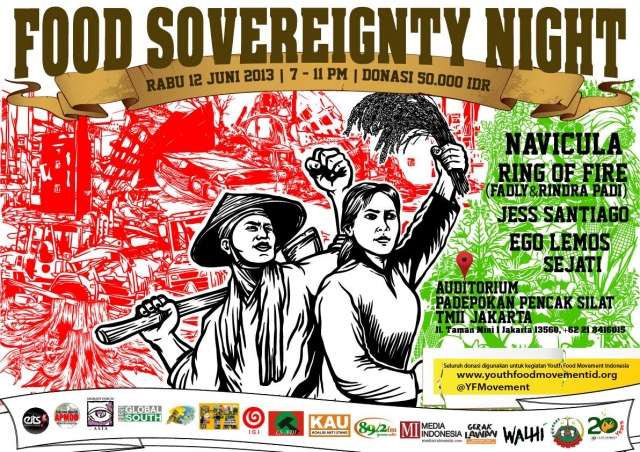The Starting point of practicing agroecology:
At first, I started agroecology farming practice by growing vegetables to feed my family, which means I grow things that I want to eat. In addition, my family is also raising chickens. We’re happy that we’re able to get our own vegetables and eat them everyday. I have been extending the garden around our house and it has also become a demonstration farm among my community. After I learned the concept and practice of agroecology, I started growing both vegetables and other crops such as rice and corn. Our cultivation yielded more produce and became more fruitful. Now, it yields more crops and vegetables than just for our own consumption, and so I have begun to share what we have with other people in the community, such as older people and the poor. I can also earn some income from selling the vegetables and have some money to send our children to school.
Since we have a lot of vegetables and seedlings, the villagers come to visit and ask about some gardening and growing techniques, and for proper treatment of these crops. Some people also asked for some vegetable plants and seeds to take back home.
I was very happy when they came forward with many questions about growing techniques. I have shared all this knowledge and experience with more than 30 community members, on the benefits of cultivation, using bio-fertilizers, dry-compost, promoting the cultivation of mixed-cropping systems and am encouraging them to try doing such gardening on their own. We believe that each family is going to need vegetables for daily consumption and so having our own garden can help fulfill family needs.
In particular, I also talked with my community members about how agroecology practice is reducing the cost of buying agricultural inputs such as fertilizer, since they can make it themselves. Earlier this year 2022, I participated in a seed festival attended by participants from many provinces across the country and presented on how to store traditional seeds properly for future planting and distributing the traditional seeds to other networks as well.
Do you think agroecology can help the affected families or communities?
I think it is useful. Agroecology can be started on a small scale, and we should not try to spend a lot of money at the beginning. We can use the tools that we already have such as an axe, hoe and others for our gardening. By doing so, we’re also creating a job for the family. On the other hand, we must keep the traditional seeds by ourselves, not buying chemical fertilizers, pesticides, or other chemical products from the market. When we have fruitful produce, we can start to supply those vegetables and meats within our community first before reaching out to the market.
My community has been affected by land grabbing and in the past, people have never cultivated vegetables on their land. I think the agroecology practice is creating sustainable jobs now that they are starting to use the land for cultivation.
In contrast, we find that modern agriculture, wherever it is started, can adversely affect the livelihood of the people in the community. Large agribusinesses have usually been linked with land-grabbing and destruction of natural resources that used to be enjoyed by the people in the community. They use modern machinery which creates noise pollution and disturbs the people who are living nearby. Some also block community thoroughfares, , not allowing people to access the land by saying that it’s privately-owned.
We wish the government will support the people from the local community and help boost the domestic/indigenous products, enhancing their value instead of just promoting imported agricultural products. Local authorities should also be open-minded and provide space for community people to arrange meetings for agricultural exchange learning.










